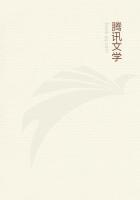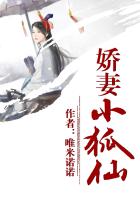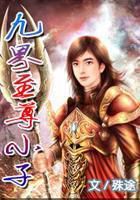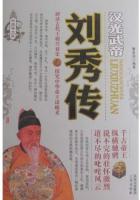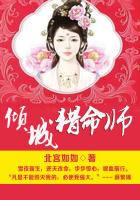WILLIAM CLOWES: INTRODUCER OF BOOK-PRINTING BY STEAM.
"The Images of men's wits and knowledges remain in Books, exempted from the wrong of time, and capable of perpetual renovation. Neither are they fitly to be called Images, because they generate still, and cast their seeds in the minds of others, provoking and causing infinite actions and opinions in succeeding ages; so that, if the invention of the Ship was thought so noble, which carrieth riches and commodities from place to place, and consociateth the most remote Regions in participation of their Fruits, how much more are letters to be magnified, which, as Ships, pass through the vast Seas of time, and make ages so distant to participate of the wisdom, illuminations, and inventions, the one of the other?"--Bacon, On the Proficience and Advancement of Learning.
Steam has proved as useful and potent in the printing of books as in the printing of newspapers. Down to the end of last century, "the divine art," as printing was called, had made comparatively little progress. That is to say, although books could be beautifully printed by hand labour, they could not be turned out in any large numbers.
The early printing press was rude. It consisted of a table, along which the forme of type, furnished with a tympan and frisket, was pushed by hand. The platen worked vertically between standards, and was brought down for the impression, and raised after it, by a common screw, worked by a bar handle. The inking was performed by balls covered with skin pelts; they were blacked with ink, and beaten down on the type by the pressman.
The inking was consequently irregular.
In 1798, Earl Stanhope perfected the press that bears his name.
He did not patent it, but made his invention over to the public.
In 1818, Mr. Cowper greatly improved the inking of formes used in the Stanhope and other presses, by the use of a hand roller covered with a composition of glue and treacle, in combination with a distributing table. The ink was thus applied in a more even manner, and with a considerable decrease of labour. With the Stanhope Press, printing was as far advanced as it could possibly be by means of hand labour. About 250 impressions could be taken off, on one side, in an hour.
But this, after all, was a very small result. When books could be produced so slowly, there could be no popular literature.
Books were still articles for the few, instead of for the many.
Steam power, however, completely altered the state of affairs.
When Koenig invented his steam press, he showed by the printing of Clarkson's 'Life of Penn' --the first sheets ever printed with a cylindrical press--that books might be printed neatly, as well as cheaply, by the new machine. Mr. Bensley continued the process, after Koenig left England; and in 1824, according to Johnson in his 'Typographia,' his son was "driving an extensive business."In the following year, 1825, Archibald Constable, of Edinburgh, propounded his plan for revolutionising the art of bookselling.
Instead of books being articles of luxury, he proposed to bring them into general consumption. He would sell them, not by thousands, but by hundreds of thousands, "ay, by millions;" and he would accomplish this by the new methods of multiplication--by machine printing and by steam power. Mr. Constable accordingly issued a library of excellent books; and, although he was ruined--not by this enterprise, but the other speculations into which he entered--he set the example which other enterprising minds were ready to follow. Amongst these was Charles Knight, who set the steam presses of William Clowes to work, for the purposes of the Society for the Diffusion of Useful Knowledge.
William Clowes was the founder of the vast printing establishment from which these sheets are issued; and his career furnishes another striking illustration of the force of industry and character. He was born on the 1st of January, 1779. His father was educated at Oxford, and kept a large school at Chichester;but dying when William was but an infant, he left his widow, with straitened means, to bring up her family. At a proper age William was bound apprentice to a printer at Chichester; and, after serving him for seven years, he came up to London, at the beginning of 1802, to seek employment as a journeyman. He succeeded in finding work at a small office on Tower Hill, at a small wage. The first lodgings he took cost him 5s. a week; but finding this beyond his means he hired a room in a garret at 2s.
6d., which was as much as he could afford out of his scanty earnings.
The first job he was put to, was the setting-up of a large poster-bill--a kind of work which he had been accustomed to execute in the country; and he knocked it together so expertly that his master, Mr. Teape, on seeing what he could do, said to him, "Ah! I find you are just the fellow for me." The young man, however, felt so strange in London, where he was without a friend or acquaintance, that at the end of the first month he thought of leaving it; and yearned to go back to his native city. But he had not funds enough to enable him to follow his inclinations, and he accordingly remained in the great City, to work, to persevere, and finally to prosper. He continued at Teape's for about two years, living frugally, and even contriving to save a little money.
He then thought of beginning business on his own account. The small scale on which printing was carried on in those days enabled him to make a start with comparatively little capital.

